
Politics
22:41, 23-Mar-2018
'A community of shared future for mankind': From myth to reality
CGTN
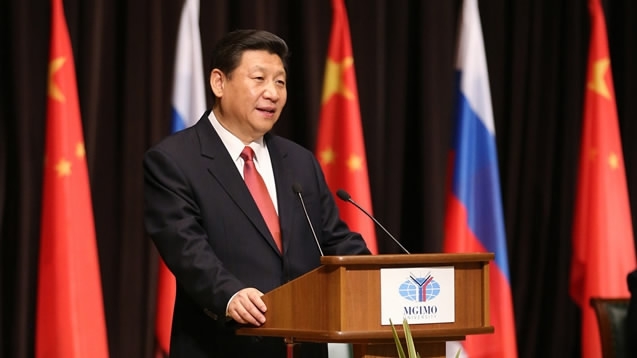
"A community of shared future for mankind" has become a buzzword among Chinese officials, five years after it was proposed by Chinese President Xi Jinping.
People across the world are living in a "community of shared future," Xi told the world for the first time in a speech in Moscow on March 23, 2013.
The idea has since been brought up many times by the Chinese president at various global events and has evolved to be "a community of shared future for mankind."
The broad concept sounds ambitious and challenging, but it has won high praise internationally and at home.
This article unpicks the definition of the concept, discusses the changes the idea has brought to the world, and asks what benefits it can deliver to people worldwide in 2018.
Is it a myth?
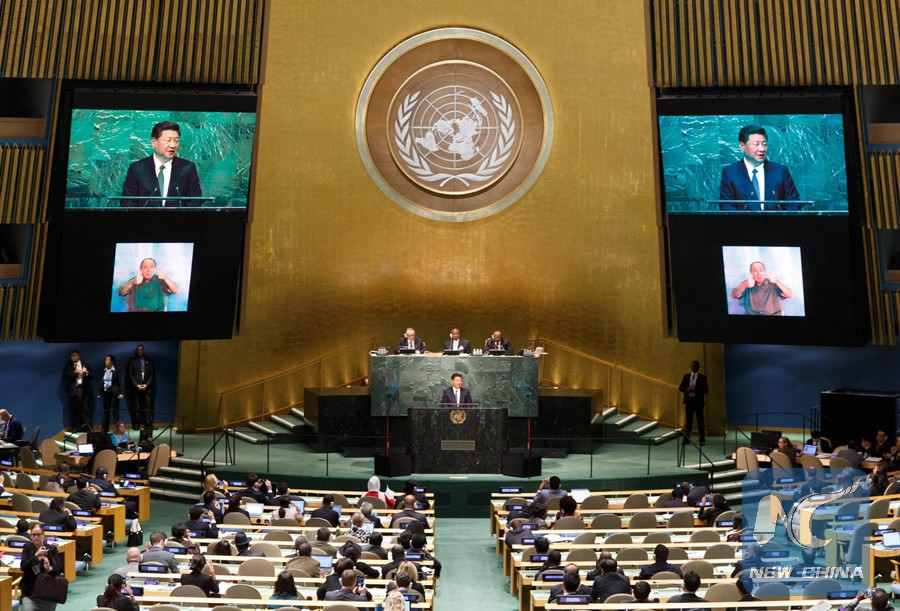
Chinese President Xi Jinping addresses the UN Sustainable Development Summit 2015 at the UN headquarters in New York, Sept. 26, 2015. /Xinhua Photo
Chinese President Xi Jinping addresses the UN Sustainable Development Summit 2015 at the UN headquarters in New York, Sept. 26, 2015. /Xinhua Photo
At the general debate of the 70th session of the United Nations General Assembly in 2015, President Xi used his first UN debate to promote the concept of "a community of shared future for mankind."
Xi urged all countries to build a new type of international relations based on win-win cooperation and creating a community of shared future for mankind.
He defined the partnerships as having "equal, mutual consulting and mutual understanding" and creating a secure world with fairness, justice and joint contributions and shared benefits.
In his second UN speech at the UN Headquarters in Geneva last year, Xi reiterated the concept, saying China wants to help build "a community of shared future for mankind" that is "open, inclusive, clean, and beautiful," so the world can enjoy lasting peace, universal security, and common prosperity.
He called on abolishing the Cold War mentality and power politics, and urged countries to resolve conflicts through communication rather than confrontation and partnerships rather than alliances.
Speaking of the global economy, Xi said countries should actively and positively adapt to economic globalization and its negative impacts, and more global governance is needed to tackle the challenges arising from economic globalization, and that the benefits should be delivered to all people around the world.
These ideas have been endorsed globally.
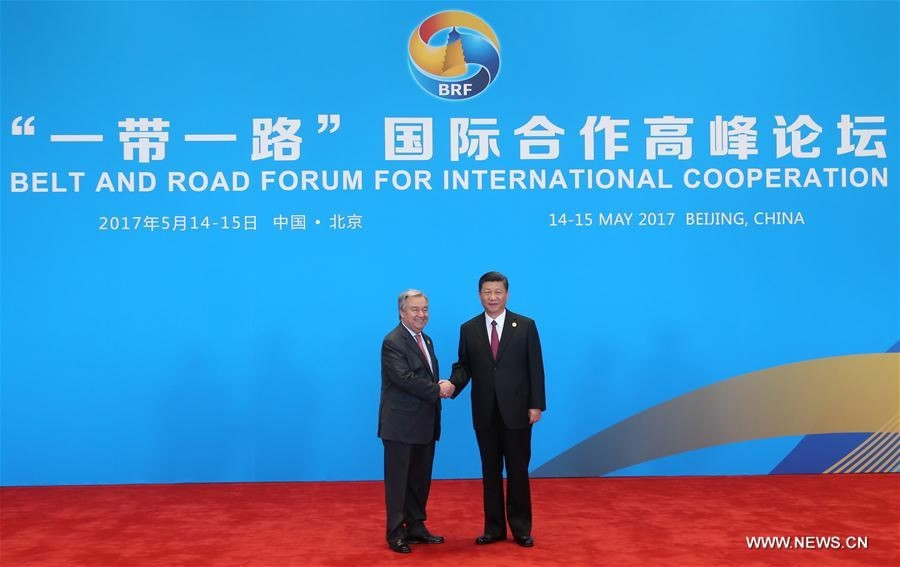
Chinese President Xi Jinping welcomes UN Secretary-General Antonio Guterres before the Leaders' Roundtable Summit at the Belt and Road Forum (BRF) for International Cooperation in Beijing, May 15, 2017. /Xinhua Photo
Chinese President Xi Jinping welcomes UN Secretary-General Antonio Guterres before the Leaders' Roundtable Summit at the Belt and Road Forum (BRF) for International Cooperation in Beijing, May 15, 2017. /Xinhua Photo
Speaking at the Belt and Road Initiative Forum in May 2017, UN Secretary-General Antonio Guterres said that "we live in a world with global problems – climate change, terrorism, inequality – and there is no way we can solve [them] on a country-by-country basis."
Echoing Xi's vision of building a community of shared future for all, Guterres said only a global solution can address global problems, and the world needs to have mechanisms of governance allowing countries to manage the problems.
Last year, the concept of "a community of shared future for mankind" was incorporated into a United Nations resolution on the 55th United Nations Commission for Social Development. It was also enshrined by the United Nations Security Council, the Human Rights Council and the First Committee of the UN General Assembly, turning a Chinese concept into an international consensus.
From concept to reality
Over the past five years, China has put a lot of work into making the concept a reality, by defending economic globalization, making efforts to curb global warming and enhancing South-South Cooperation.
– Economic globalization
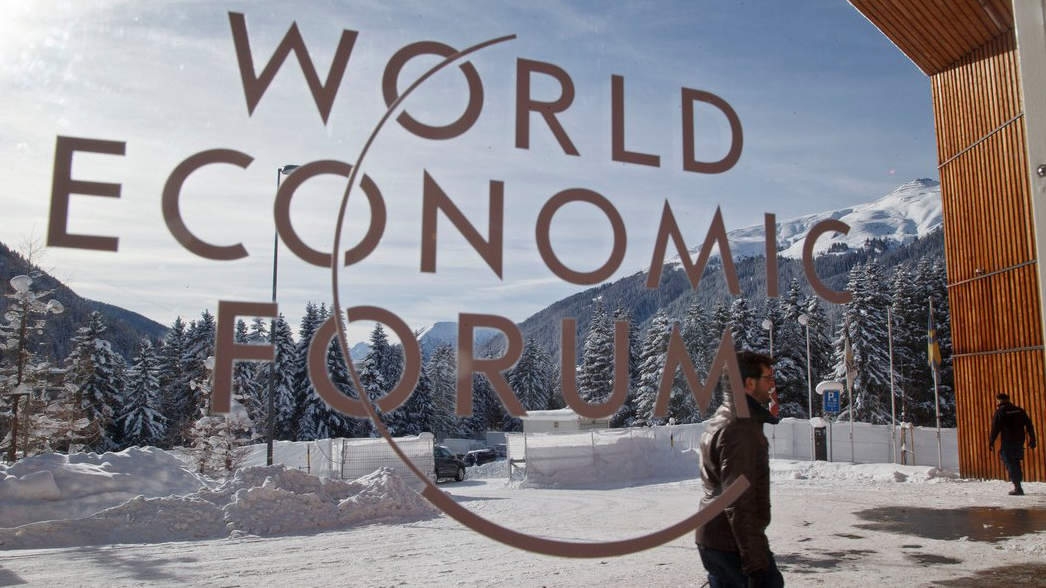
VCG Photo
VCG Photo
When he was addressing the World Economic Forum (WEF) in early 2017, Xi said world problems like the refugee and financial crises are not caused by economic globalization, but countries need to take the voices against globalization seriously.
The remarks came as Donald Trump became US president, a rise to power that owed much to the values of "America First" and anti-globalization.
Xi urged countries to adapt to and guide economic globalization, cushion its negative impacts, deliver its benefits to all countries and all nations, and called on more global economic governance to increase representation and inclusiveness, especially for developing countries.
Economic globalization is a double-edged sword, and China once had doubts about it, Xi said.
But China acknowledges the changes in the global economic landscape that have happened over the past few decades and embraces the trend, he said. Nowadays, China has not only benefited from economic globalization but also contributed to it. China has become a sustained, powerful engine for world economic stability and growth.
Xi has made clear that in the new era China will deepen economic reform and opening up, and continue to contribute to global governance with Chinese solutions.
At the first session of the 13th National People's Congress (NPC), China's top legislature, Xi told nearly 2,900 lawmakers that China will continue to actively participate in reforming the global governance system, contribute Chinese wisdom and Chinese solutions to global issues, and help make a world that enjoys lasting peace, safety, mutual prosperity, openness, inclusivity, cleanliness and beauty, so that people from all over the world can benefit from the community of shared future for mankind.
– Defending the Paris Accord
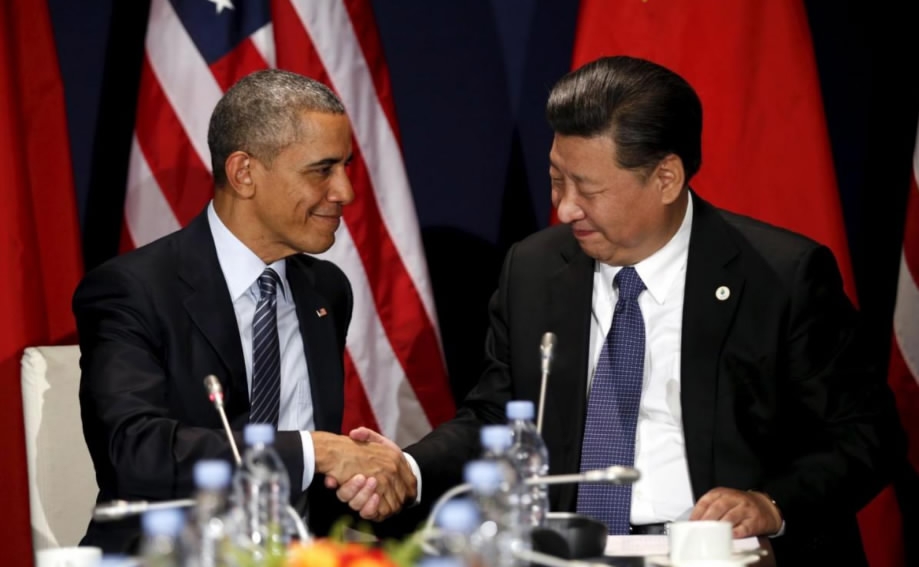
US President Barack Obama shakes hands with Chinese President Xi Jinping at the start of the climate summit in Paris, Nov. 30, 2015. /Reuters Photo
US President Barack Obama shakes hands with Chinese President Xi Jinping at the start of the climate summit in Paris, Nov. 30, 2015. /Reuters Photo
The ecological environment is important to Xi's vision of "a community of shared future for mankind."
The president flew to Paris in 2015 to ink a historic deal, signed by 195 countries and regions, to cut growing carbon dioxide emissions and curb global warming.
Xi pledged to put a peak on its growing carbon dioxide emissions by the year 2030, cut coal consumption and draw 20 percent of the country's energy from non-fossil fuels during the same time period.
Even after Trump announced he would pull out of the deal in June 2017, China didn't stop its fights against pollution or climate change.
Instead, it has since cut its consumption of fossil fuels by 8.1 percent, and increased its clean energy production by 6.3 percent.
The country set its target in 2018 to cut energy consumption per unit of GPD by 3 percent and slash sulfur dioxide and nitrogen dioxide emissions by 3 percent.
– South-South Cooperation
In the UN address in 2015, Xi said the Chinese government will provide 2 billion US dollars to support South-South cooperation and assist developing countries in implementing their post-2015 development agenda.
To help the least developed countries, China will also try to raise a 12 billion US dollar investment by 2030, and it will exempt the debt from the outstanding intergovernmental interest-free loans due by the end of 2015 that are owed by certain developing countries.
What will happen in 2018?
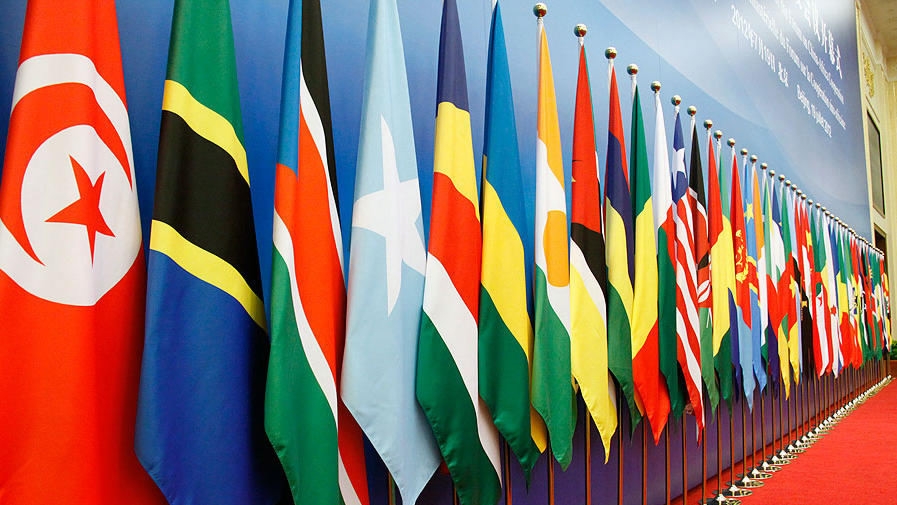
VCG Photo
VCG Photo
China has said it will continue to contribute Chinese wisdom to world problems in 2018.
Foreign Minister Wang Yi told reporters at an annual press conference earlier this month that China will host four major international events, including the upcoming Boao Forum for Asia next month and the Forum on China-Africa Cooperation Summit in September.
Wang said China will work with African countries and other developing countries to build a community of shared future, and Beijing will add new stimuli to its mechanisms with Africa, Latin America and the Caribbean, and Arab countries.

SITEMAP
Copyright © 2018 CGTN. Beijing ICP prepared NO.16065310-3
Copyright © 2018 CGTN. Beijing ICP prepared NO.16065310-3